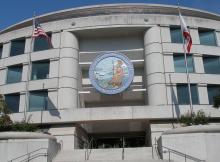
Legislation that would require ISPs operating in Massachusetts to offer qualifying low-income households high-speed Internet service for $15 per month is set to have its first legislative hearing.
The hearing is slated to run from 11 am to 1 pm ET today before the Massachusetts Legislature’s Joint Committee on Telecommunications, Utilities, and Energy. Committee members will hear testimony on multiple bills, including two companion pieces of legislation known as An Act Preserving Broadband Service for Low-income Consumers – S.2318 (filed by State Sen. Pavel Payano) and H.3527 (filed by State Rep. Rita Mendes).
The proceedings can be viewed here.
Inspired by New York Law
The hearing in Massachusetts comes as similar legislation is being considered by state lawmakers in Vermont and California – all three of which are modeled on New York’s Affordable Broadband Act which, after numerous legal challenges, went into effect in the Empire State in January of this year after the US Supreme Court declined to intervene and overturn a U.S. Appellate Court ruling that upheld the law.
Like the New York law, the bill being proposed in Massachusetts requires ISPs operating in Massachusetts to offer qualifying low-income households high-speed Internet service for $15 per month.
However, the Massachusetts bill set the minimum speed at 100 Megabits per second (Mbps) download to mirror the increased FCC definition for minimum broadband speeds that had been raised from the previous benchmark of 25/3 Mbps, which was the federal standard when the New York law was written.
Also, like the New York law, the proposed Massachusetts legislation allows an alternative option for ISPs to offer a low-cost plan of $20 per month for qualifying low-income households for 200 Mbps service.

With proponents noting how “access to the Internet is now a necessity for everyday activities and essential for education, employment, leisure, business, public services and healthcare,” advocates note that tens of thousands of residents would stand to benefit from passing the law, especially in light of the demise of the federal Affordable Connectivity Program (ACP) last year that had offered over 23 million US households a $30/month voucher to pay for home Internet service.
Virginia Benzen, an attorney with the Massachusetts Law Reform Institute and leading proponent of the legislation, noted in a recent presentation how the proposed legislation stands to benefit tens of thousands of residents. She pointed out that nearly 1 in 10 households in the state do not have high speed Internet service at home with a total of about 368,000 households that had been enrolled in the now defunct ACP program.
“High internet costs are the biggest barrier to residents having broadband at home,” Benzen said.
Eligibility, Enrollment, and Key Differences
The proposed legislation ties eligibility to household income that is at – or below – 200 percent of the Federal Poverty Level and includes any household that already receives assistance such as Supplemental Nutrition Assistance Program (SNAP) benefits, Medicaid, Supplemental Security Income (SSI), federal or state housing assistance, or is enrolled in the Free/Reduced School Lunch or in the Women, Infants and Children (WIC) program.

That mirrors what’s in the New York law, as do various other provisions (e.g. allows a price increase once every two years for 200 Mbps service and every five years for 100 Mbps service). But where the Massachusetts legislation, as currently proposed, differs from New York is when it comes to exemptions.
The New York law – keen to increase competition and choice for consumers – offers an exemption waiver for small ISPs with 20,000 or fewer subscribers.
The Massachusetts bill only exempts municipal broadband providers.
Another difference between the proposed legislation in Massachusetts and the law in New York is that while both require annual compliance reports from ISPs, the Massachusetts law imposes a $1000 civil penalty per violation and also allows for the state Attorney General’s office to enjoin to “prevent future violations.”
That provision reflects one of the shortcomings of the New York law that advocates helping to enroll households in New York have highlighted: lack of a real enforcement mechanism.
Advocates on the ground in New York have said that because the ABA allows ISPs to control the enrollment and verification process, it has allowed providers to slow-walk the process and make it difficult for eligible households to enroll.
Another provision in the proposed Massachusetts bill takes preventative aim at something else advocates in New York have found: not many people, including numerous customer service reps, are even aware of the law and who is eligible to benefit.
To dissuade ISPs operating in Massachusetts from mimicking those practices, the Massachusetts legislation seeks to mitigate that potentiality by mandating ISPs take “all commercially reasonable efforts” to promote the low-cost offering for eligible households and for it to be prominently displayed on ISP websites.
Challenges Ahead
While the legal questions around whether states have the authority to impose a low-cost mandate on ISPs has been settled when the New York law was upheld, similar legislation is still likely to get pushback from the major incumbents – and in Massachusetts possibly even from smaller providers as the Massachusetts legislation exempts only municipal entities.
In Massachusetts, the New England Connectivity and Telecommunications Association, a group which includes Comcast and Charter, has already registered its opposition.
“The rate regulation proposed in this bill is not only unnecessary but would be counterproductive – introducing significant inefficiencies, imposing substantial additional compliance costs and uncertainty for ISPs, and ultimately distracting from the shared goal of connecting as many Massachusetts residents as possible to robust and affordable broadband services,” NECTA spokeswoman Anna Lucey said when the bill was first filed.

Such opposition from the big providers is to be expected regardless of the specific provisions in the bill. However, there are a number of smaller private providers looking to bring competition to the state’s monopoly dominated market who may raise objections to how the Massachusetts legislation currently only exempts municipal providers.
As we noted in our policy brief analyzing New York’s law, there are many small ISPs that may not be able to afford to offer a $15/month service because they are already stretched thin by the challenges of operating in areas with much higher operating costs.
Our analysis goes on to note that “states should be mindful of the difficult economics of operating telecommunications networks, where having fewer than 5,000 subscribers is challenging in the best circumstances and decent margins generally only exist above 20,000 subscribers (though there are exceptions). These challenges are especially obvious in remote areas but can also be present in urban areas of significant poverty.”
Still, debate over specific provisions in affordable broadband legislation aside, proponents of affordable Internet access in Massachusetts (California and Vermont), we believe, are right to focus on solving the affordability crisis, as the high cost of Internet service is one of the main drivers of the digital divide and a major barrier to ensuring universal access to such a vital service.
Though the hearing on the Massachusetts legislation is set for today, written testimony can be submitted up until 5 pm on May 13th.
Header image of Massachusetts statehouse courtesy of Daniel Mennerich on Flickr, Creative Commons, Attribution-NonCommercial-NoDerivs 2.0 Generic
Inline graphics courtesy of the Massachusetts Law Reform Institute







